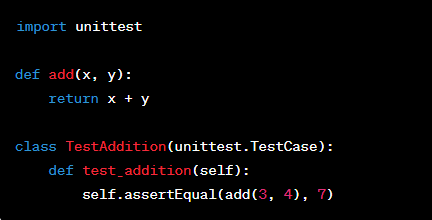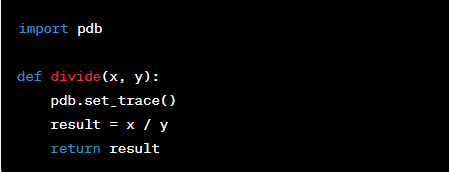Introduction:
A significant part of the software development process is testing and debugging. It guarantees that your code performs as planned and continues to be durable despite shifting conditions and requirements. The recommended practises for testing and debugging in Python will be covered in this article, along with various tools and methods to assist you in producing dependable, high-quality code.
Testing in Python:
1. Unit Testing:
An isolated test of each unit or component of a program is known as a unit test. The unit test library with Python offers a framework for creating and running unit tests.

2. Test-Driven Development (TDD):
In the test-driven development (TDD) method, tests are written before writing any code. It promotes the construction of modular, testable code and aids in describing the anticipated behaviour of the code.
3. Mocking:
You can substitute fake objects for specific system components under test using the unit test-mock module. When you wish to isolate particular behaviours for testing, this is helpful.
4. Test Coverage:
By displaying which sections of your code are being worked on during testing, tools like coverage.py can help you evaluate your tests’ effectiveness.

Debugging in Python:
1. Using Print Statements:
By including print statements at various points in your code, you may easily but effectively debug your code by keeping track of the flow of variables and their values.

2. Debugger:
Pdb is an integrated debugger for Python. You may interactively explore variables, step through the code, and set breakpoints.

3. IDE and Editor Support:
Integrated development environments (IDEs) like PyCharm and VSCode offer powerful debugging tools. These tools let you set breakpoints, check variables, and step through code.
4. Static Code Analyzers:
Before you ever run your code, tools like flake8, pylint, and mypy can help you find potential problems.
Continuous Integration (CI):
To test your code before every commit, automate your testing procedure with CI solutions like Travis CI, CircleCI, or GitHub Actions.
Conclusion:
Debugging and testing are essential components of software development. You can write more dependable and maintainable Python code by following these best practices and using the relevant tools. As with any talent, creating tests and debugging code improves with practice, so keep working on them to become a more skilled developer. Coding is fun!

